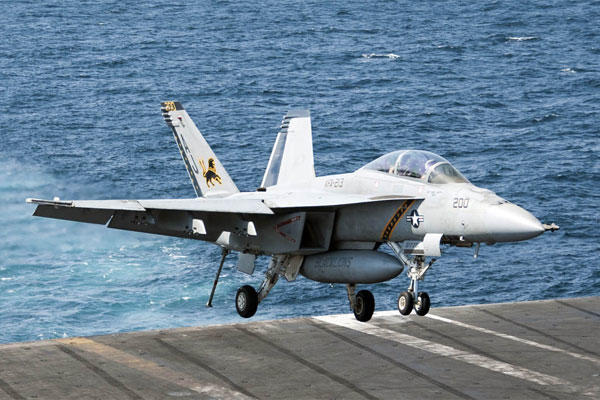The chief of staff of the Iraq/Syria task force took issue Friday with renewed Iraqi complaints about the lack of airstrikes to back up the Iraqi Security Forces in the sputtering campaign to retake Ramadi from ISIS.
"There is constant coalition air support" for the ISF in both Ramadi and the oil refinery city of Baiji to the north, said Marine Brig. Gen. Kevin Killea, chief of staff for Combined Joint Task Force-Operation Inherent Resolve.
"It's an interesting perspective that they (the Iraqis) said they need more," Killea said in a video briefing to the Pentagon. "From my perspective, the air support that we're giving in Iraq for the security forces is what they need."
The U.S. carried out at least 16 airstrikes around Ramadi in the past week, Killea said, adding that a single airstrike can involve "multiple engagements."
Commenting on the slow pace of the campaign to retake Ramadi, Maj. Gen. Qasim al-Mohammadi, head of Iraq's Anbar Operations Command, told the Washington Post that "What is making it slow is that there are not enough airstrikes from the coalition to clear targets on the ground."
"The coalition isn't available all the time for Ramadi. They are busy (elsewhere in Iraq) and in Syria, so there's a lack of strikes," al-Mohammadi said.
Iraqi President Haider al-Abadi has also complained about lengthy delays between an ISF request for airstrikes and the arrival of a coalition warplane.
Since the fall of Ramadi to ISIS on May 15 as the ISF fled, Iraqi military and civilian officials have frequently claimed that a counter-attack was imminent to drive out ISIS.
A week after Ramadi fell, Abadi said a counter-attack to retake the city would begin "within days." On July 13, ISF officials said that a "dawn assault" was being prepared and on Aug. 11 other officials said that a "final assault" was on the verge of being launched.
On the ground, little appears to have changed. Killea said the ISF was still in the "isolation phase" of moving forces in an attempt to encircle the city. Killea also said that ISIS was moving in re-inforcements and setting up a maze of improvised explosive devices and other defenses to ward off attack.
The situation was much the same to the north in the oil refinery city of Baiji, where the ISF has been attempting to drive out ISIS since late last year. Killea said the city was still "very contested."
Killea's news briefing came a day after Gen. Mark Milley made his first trip to Baghdad as the new Army chief of Staff. Milley and Army Lt. Gen. James Terry, commander of CJTF-Operation Inherent Resolve, met with Iraqi Defense Minister Khaled al-Obaidi.
-- Richard Sisk can be reached at richard.sisk@military.com






























